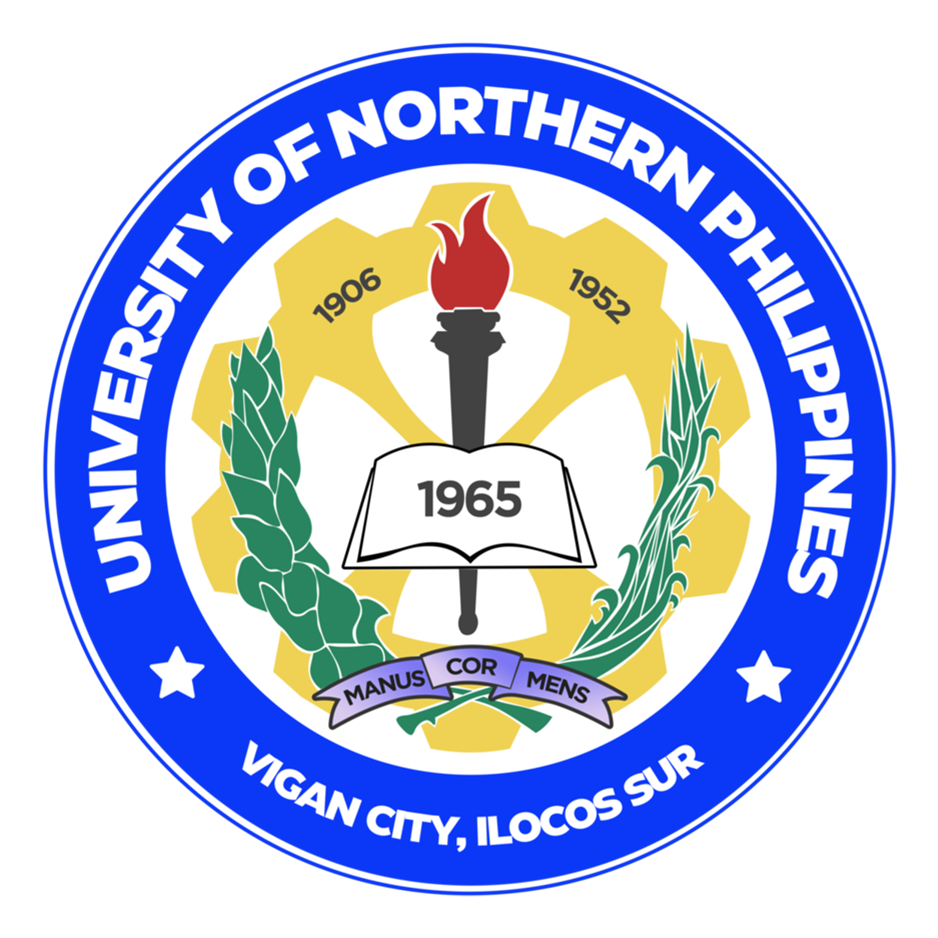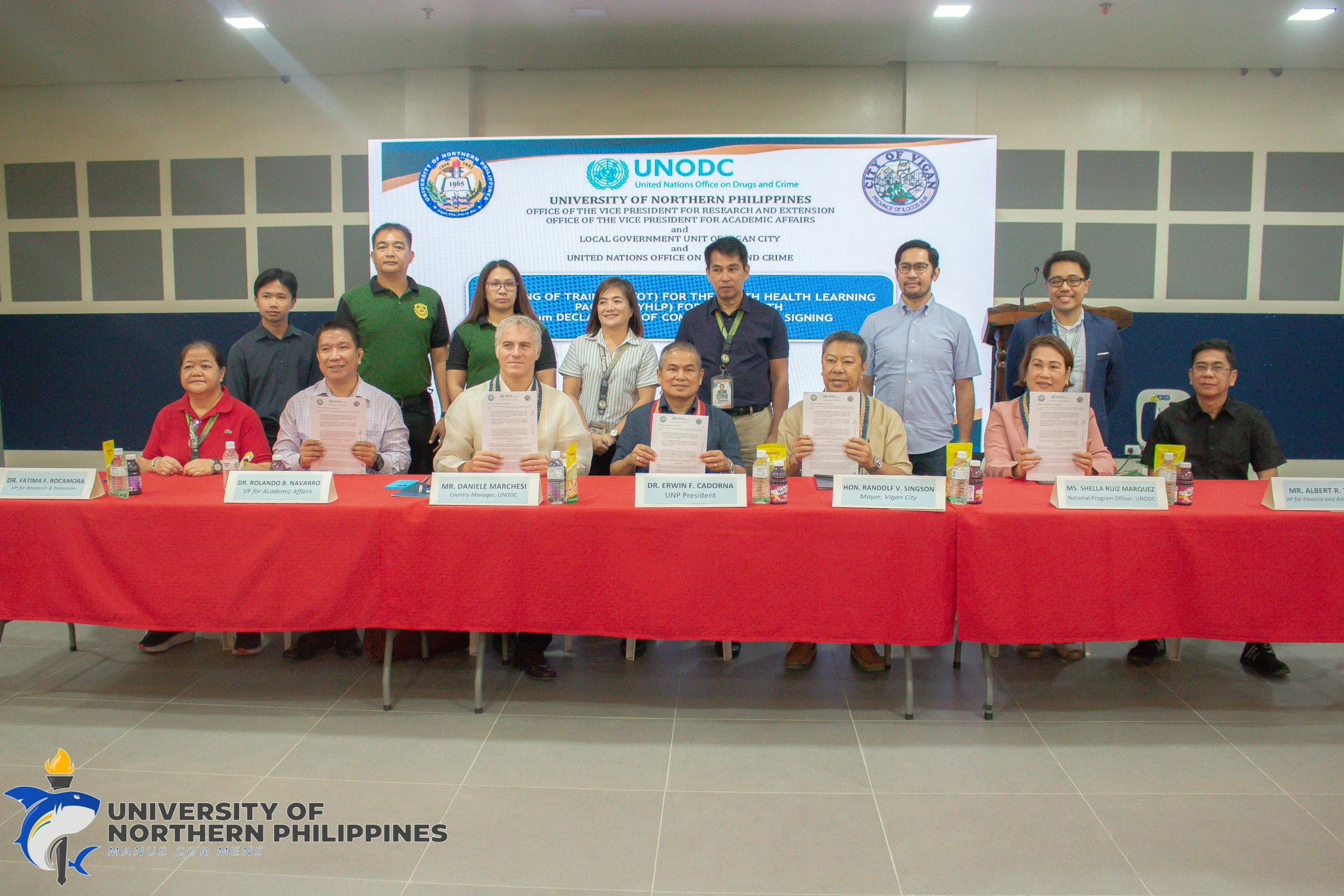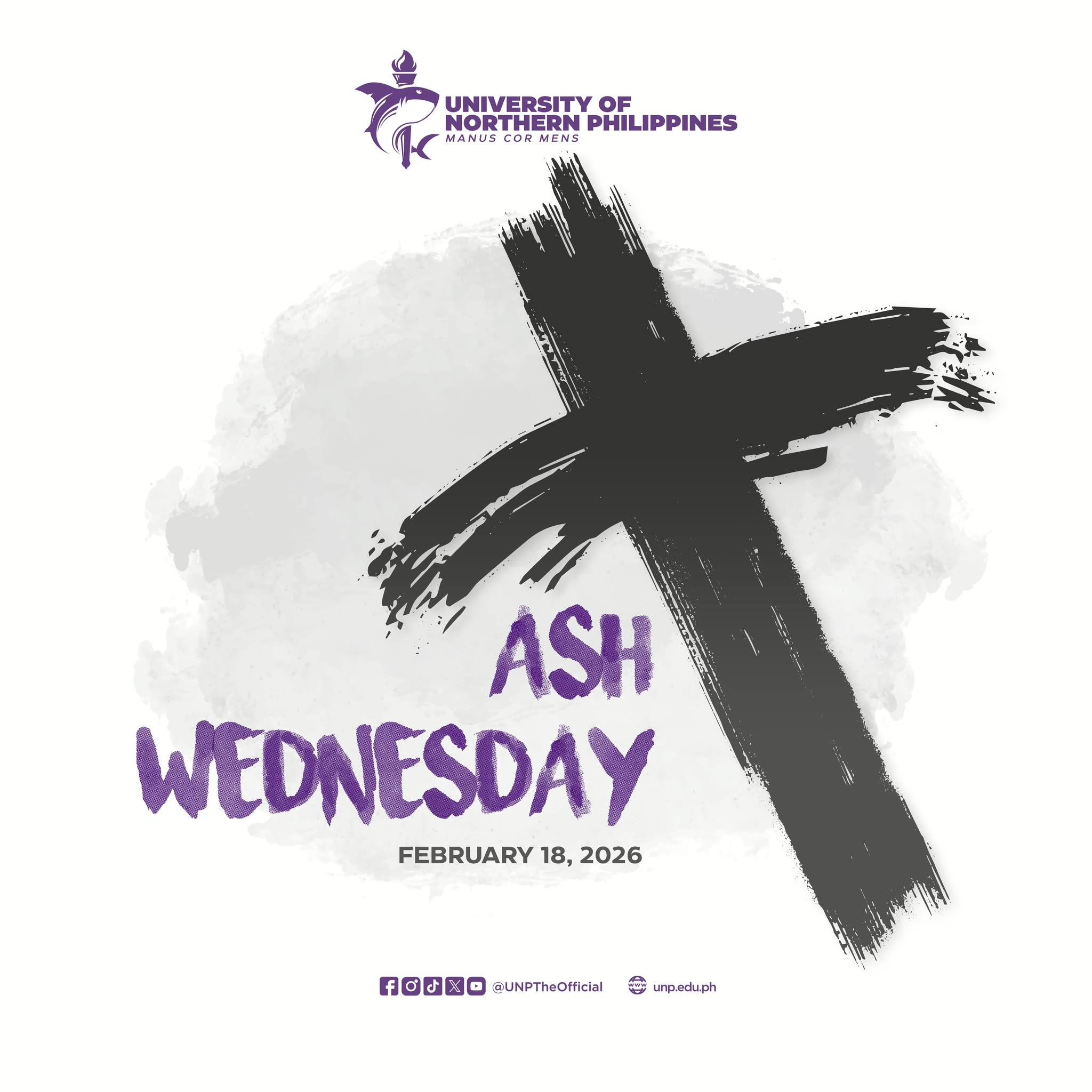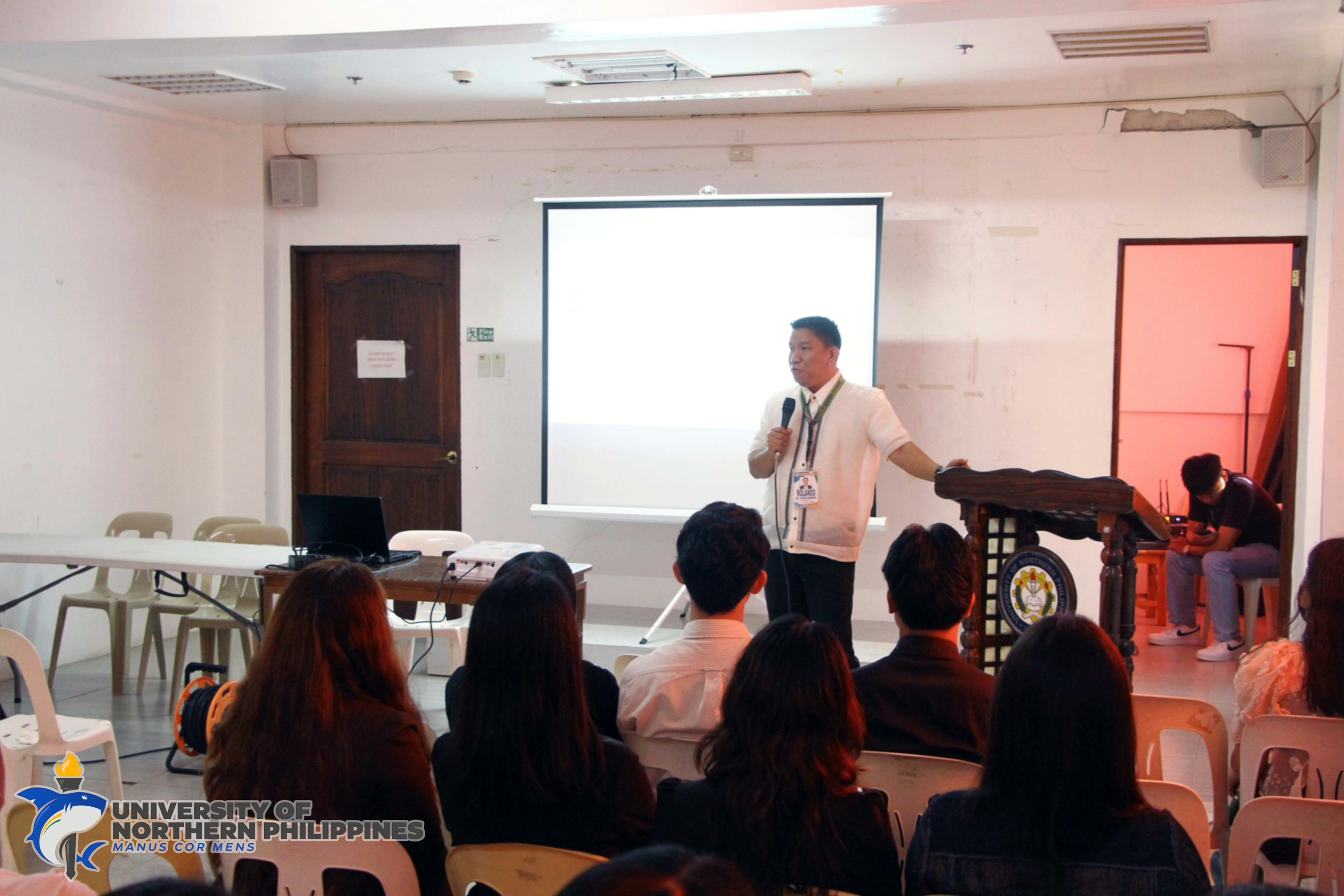The University of Northern Philippines (UNP), in collaboration with the United Nations Office on Drugs and Crime (UNODC) and the City Government of Vigan, kicked off the “Training of Trainers (ToT) for the Youth Health Learning Package (YHLP) for Core Youth cum Declaration of Commitment (DOC) Signing” on August 12, 2025, at the UNP TechCom Function Hall.
The three-day event, which will be until August 14 gathered youth leaders, educators, and partners in a joint effort to strengthen youth health advocacy.
The event also featured a Declaration of Commitment Signing. The signatories were UNP President Dr. Erwin Cadorna; Dr. Rolando Navarro, VP for Academic Affairs; Dr. Fatima Rocamorra, VP for Research and Extension; Mr. Albert Tejero, VP for Finance and Administration, with Hon. Randy Singson, Vigan City Mayor; Mr. Daniele Marchesi, UNODC Country Manager; and Ms. Shella Marquez, UNODC National Program Officer.
The signing was witnessed by Atty. Gerald Franco Posadas, Vigan City Legal Officer; Atty. Gerwin Rabang, University Chief Administrative Officer; Atty. Christian Philip Chan, University Legal Officer; Dr. Sally Jarin, Director, International Affairs and External Linkages Office; and Jake Axel Tacadena, University Student Council President.
In his message Dr. Cadorna expressed, “readiness to take part in rehabilitation efforts, but more importantly, we believe the best course of action is prevention. The University of Northern Philippines is home to more than 17,000 students from across the province and beyond, not only from nearby communities but also from other parts of the country and even abroad. Our programs welcome students from La Union, Ilocos Norte, and other provinces, as well as participants in our international and distance education programs.”
He further added, “because of diverse student population from across Luzon and other regions, we are in a strong position to work with PDEA and other organizations to help disseminate information, raise awareness, and strengthen prevention measures. This is not just about addressing current issues, but also about safeguarding the future by stopping these challenges before they spread further.”
Hon. Singson expressed his gratitude for the ongoing initiative and for the intervention of the United Nations Office on Drugs and Crime (UNODC) in addressing the alarming rise of HIV cases in the city.
“The challenge is that we lack sufficient data and capacitation to create an efficient program. That is why this capacitation program is so timely. Through it, we can develop a better and more effective intervention to address the increase in HIV cases,” Mayor Singson said.
He further affirmed his commitment as city mayor to the cause, stating his commitment to working closely with the University of Northern Philippines to come up with an efficient program.
Mr. Marchesi explained in his message, “data is crucial in understanding the facts on the ground, the trends of drug use, and the health harms linked to drugs, including those affecting children and the elderly. In the Philippines, we work closely with the Dangerous Drugs Board to develop surveys, provide advisory services, and strengthen data-based approaches.”
He said that along capacity building, “we promote a health-based approach, recognizing the complexity of drug issues beyond simple slogans.”
He also stated that, “local governments are key players, as they can leverage health, education, prevention, and social services along with law enforcement to address the drug phenomenon. Drug use also has economic and equality dimensions, as it often has a greater impact on the poor than on the wealthy.”
Dr. Rolando Navarro, in his remarks, said that “our young people are the heartbeat of our nation’s future. That is why, by equipping our trainers, and you, who will later become our future trainers, members, and advocates, with the right knowledge, skills, and attitudes, we are planting seeds of positive change that will grow and ripple across our communities. The Youth Health Learning Package is more than just a set of modules. It is a vital tool for holistic development, covering physical health, mental wellness, responsible relationships, and informed decision-making.”
Ms. Marquez, UNODC National Programme Officer, gave an overview of the topics related to HIV during the event, providing participants with important information and raising awareness about the issue among the youth. Her presentation gave a sense of urgency and significance of addressing HIV as part of the overall youth health advocacy efforts in the training program.
Throughout the training, YHLP Core Team, Mr. Edison Eugenio and Ms. Xanthe Grace Gonzales, will engage participants in interactive modules tackling key youth health topics such as sexual and reproductive health, gender sensitivity, HIV awareness, mental health, healthy relationships, consent, and effective referral systems. The collaborative effort reinforces the shared commitment of UNP, local government, and international partners to empower youth with relevant skills and advocate for community wellness.
The collaborative event reaffirmed the commitment of UNP and its partners to equip core youth with essential knowledge and skills, empowering them to become proactive advocates for health and well-being in their communities.
The training will renew pledge of support from all stakeholders, to reinforce the vital role of youth in shaping a healthier and more informed generation.
Documented by Noelle Tacas and Rhino Adame.




